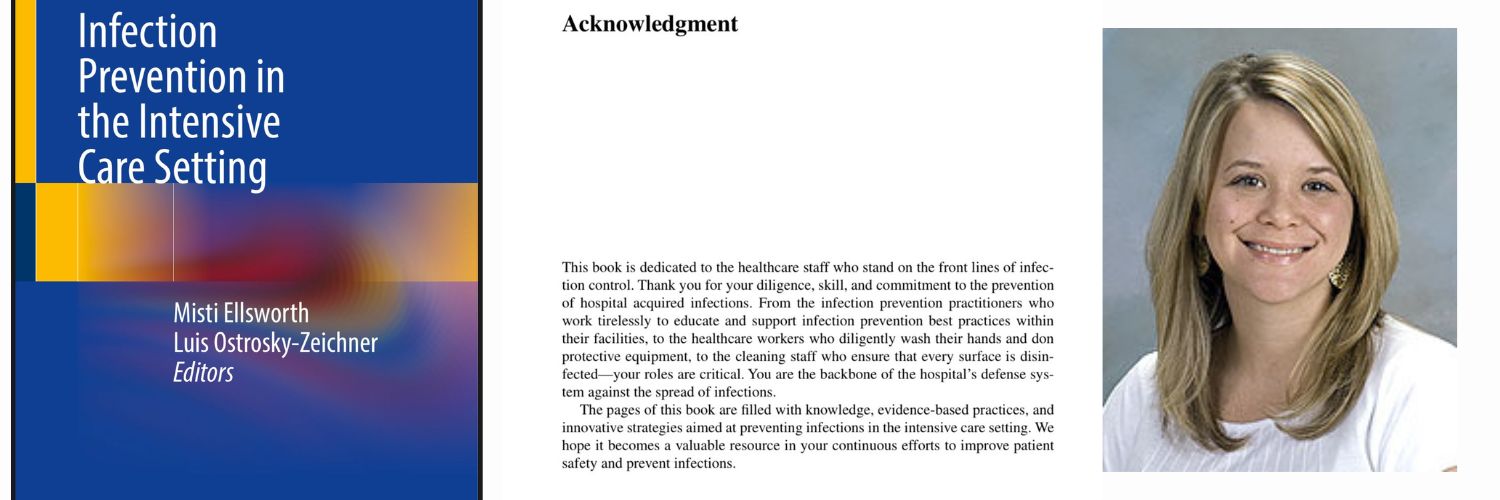Quality Improvement Initiatives
The Division of Pediatric Infectious Diseases is dedicated to improving the quality and safety of care for hospitalized children through its leadership in Infection Prevention and Antimicrobial Stewardship. Faculty members serve in key roles that enable them to lead and support a wide array of hospital-wide and unit-based Quality Improvement (QI) initiatives at Children’s Memorial Hermann Hospital and across the Memorial Hermann Health system.

Ellsworth was co-editor of Infection Prevention in the Intensive Care Setting, published by Springer in 2024.
Pediatric Infectious Diseases physicians are actively involved in QI efforts aimed at reducing health care-associated infections and promoting the judicious use of antibiotics. Past successful projects, led by Associate Professor Misti Ellsworth, DO, include:
- improving hand hygiene compliance in the Neonatal Intensive Care Unit (NICU)
- reducing surgical-site infections following Cesarean sections and pediatric neurosurgery
- improving the accuracy and timeliness of perioperative antibiotic prophylaxis
- increasing rates of COVID-19 vaccination among pediatric patients in the hospital setting

Chang presented at the inaugural Antimicrobial Stewardship Symposium at Children’s Memorial Hermann Hospital, an event he helped coordinate.
Division faculty continue to spearhead several high-impact QI initiatives. Associate Professor Michael Chang, MD, serves as the director of pediatric antimicrobial stewardship for McGovern Medical School and Children’s Memorial Hermann Hospital and supports many of these important projects.
Current efforts include:
- leveraging Centers for Disease Control National Healthcare Safety Network Antimicrobial Use and Resistance module data for improving empiric antibiotic selection for pediatric community-associated sepsis
- reducing unnecessary empiric use of vancomycin in the Pediatric Intensive Care Unit
- facilitating pediatric hospitalist guideline development and implementation
- improving compliance with chlorhexidine gluconate bathing protocols for hospitalized children
These initiatives directly contribute to safer care environments, reduced antimicrobial resistance, and better patient outcomes.